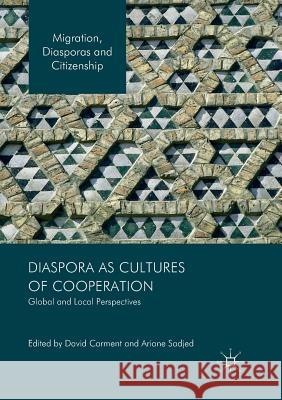Diaspora as Cultures of Cooperation: Global and Local Perspectives » książka
topmenu
Diaspora as Cultures of Cooperation: Global and Local Perspectives
ISBN-13: 9783319813912 / Angielski / Miękka / 2018 / 290 str.
Kategorie:
Kategorie BISAC:
Wydawca:
Palgrave MacMillan
Seria wydawnicza:
Język:
Angielski
ISBN-13:
9783319813912
Rok wydania:
2018
Wydanie:
Softcover Repri
Ilość stron:
290
Waga:
0.44 kg
Wymiary:
21.08 x 18.77 x 1.88
Oprawa:
Miękka
Wolumenów:
01
Dodatkowe informacje:
Wydanie ilustrowane











